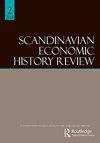不必要的激进主义:经济思想在政治思想中的局限
IF 0.5
Q4 ECONOMICS
引用次数: 0
摘要
本文章由计算机程序翻译,如有差异,请以英文原文为准。
Unnecessary radicalism: the limits of economic ideas in political thinking
This article analyses late 1960s ’ and early 1970s ’ policy debate on issues concerning balance of payments in Sweden. Part of this debate was the question of fi scal austerity as a tool to achieve external balance, and if it could be used without risking economic and social unrest. The aim is twofold: fi rst to empirically shine new light on modern Swedish economic policy in a historic context. Second to theoretically explore new ways of interpreting the relationship between political thinking and economic ideas. Special focus within the second aim are the consequences of political thinking on Keynesian economic ideas as a framework of economic understanding at the time. The study is qualitative in its methods and pays attention to limits within the relationship between economic policymaking and economic expertise. The article highlights con fl icting perspectives on Keynesian ideas and the heterogeneity of these perspectives among economic experts. A heterogeneity of this kind is also shown to complicate the assumed close relationship between Social Democracy and Keynesianism in a historic context. In essence, the article shows that studying policy debates in close historic detail makes for new conclusions on the development of modern economic ideas and the part political thinking plays in it.
求助全文
通过发布文献求助,成功后即可免费获取论文全文。
去求助
来源期刊

SCANDINAVIAN ECONOMIC HISTORY REVIEW
ECONOMICS-
CiteScore
1.60
自引率
16.70%
发文量
20
期刊介绍:
Scandinavian Economic History Review publishes articles and reviews in the broad field of Nordic economic, business and social history. The journal also publishes contributions from closely related fields, such as history of technology, maritime history and history of economic thought. Articles dealing with theoretical and methodological issues are also included. The editors aim to reflect contemporary research, thinking and debate in these fields, both within Scandinavia and more widely. The journal comprises a broad variety of aspects and approaches to economic and social history, ranging from macro economic history to business history, from quantitative to qualitative studies.
 求助内容:
求助内容: 应助结果提醒方式:
应助结果提醒方式:


